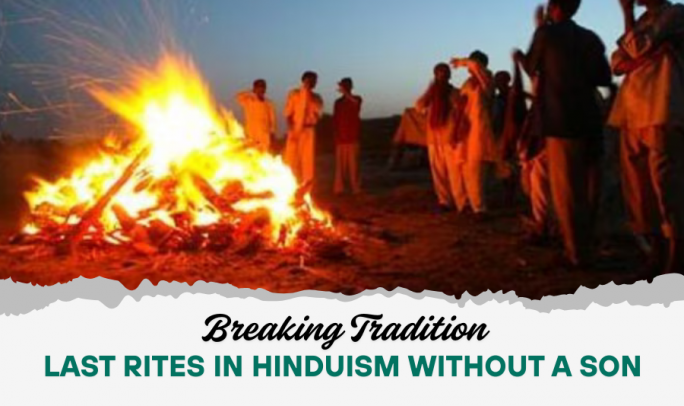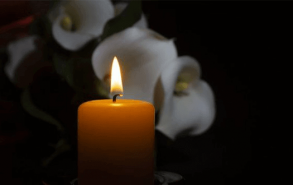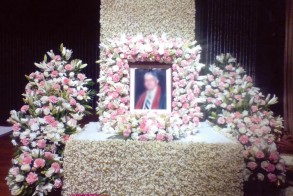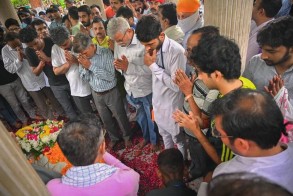Lastjourney Blog
Breaking Tradition: Last Rites in Hinduism Without a Son

 Table of Contents
Table of Contents- Importance of the final rites in the Hindu Religion
- What are the compelling reasons behind choosing Son for the execution of the Final Rites
- Who else can perform the Last Rites for the departed soul in the absence of the Son
- Why is it necessary to break the Gender Norms in the context of executing the Final Rites
- Bursting Myths about Last Rites Without a Son
- What is the New Approach to performing Final Rites in Hinduism
- Final Words
Hindus believe it is a required religious obligation to perform funeral ceremonies for the deceased. Another name for these last ceremonies is Antim Sanskar. It can be viewed as a spiritual practice that permits the soul to depart from the body in peace, so assisting it in achieving moksha, or emancipation. Following the old Hindu Vedic traditions, the son of the deceased is expressly in charge of carrying out funeral rites in the most respectable way possible.
The topic of "who can perform last rites in Hinduism if no son" immediately comes up as families oversee a highly significant and delicate ceremony. Additionally, you can read this article to learn about traditional funeral customs and supply stand-in actors when sons are unable to play.
Importance of the final rites in the Hindu Religion
Antim Sanskar is considered the last cultural and spiritual rite in the Hindu customs (Sanskaar) of a human being. In Hinduism, dying is seen as a step that will lead to something better. Since the last rites signify that the departed soul travels to another body and creates a spiritual serenity, these rites serve as an important spiritual exercise.
According to the holy scripture of Hinduism, Garuda Purana, the correct way of cremation and rites are required in order to help the soul obtain moksha (Salvation). Performing the final rites is a religious duty that should be performed by the elder son of the family. But in the sacred scriptures of the Hindu religion, in the absence of a son, some other family members are also allowed to perform the final rituals of the deceased person.
Also Read, Hindu Death Rituals after the Death of a Child
What are the compelling reasons behind choosing Son for the execution of the Final Rites
The son continues the funeral rites in accordance with ancient Hindu traditions. Hindu scriptures state that sons are obligated to perform all the duties included in the Antim Sanskaar. One can provide spiritual serenity to their deceased spirits by conducting the fundamental Hindu practice of pind daan with rice or barley flour balls devoted to the ancestors.
In popular opinion, a son holds the special ability and responsibility to carry out final religious rituals correctly for the peace and dignity of the departed soul.
Who else can perform the Last Rites for the departed soul in the absence of the Son
One can still expect their religious end-of-life rituals to be performed if the deceased has no son left to execute dignified final rituals.
1. Daughters of the family
Although sons were traditionally responsible for funeral duties, daughters are now being recognized by Hindu families as capable of handling these final rituals. A daughter plays an equally significant role in the family and is just as loved by her parents as a son is.
Daughters are now able to take the lead in performing the final rites in progressive homes by ruling out the typical gender stereotypes. Many Hindu communities and religious organizations actively state the inclusion of daughters in the final rites, despite possible social opposition in several parts of India.
2. Very close relatives such as Brother, Nephew, son-in-law, or Male Cousin
When there is a presence of brothers, nephews, and male relatives in the deceased's family without any sons, then the closest male relative is allowed to carry forward the duties related to the final rites. This approach also follows the traditional Hindu traditions that assign funeral responsibilities specifically to male family members.
A question might be raised during the funeral rites: Can your son-in-law give the last rites? The answer is, Yes. If there are no living male relatives, a son-in-law is allowed by Hindu traditions to perform the Hindu final rites along with the family members.
3. The Widow or the Deceased's Wife
When no sons or other close male relatives are present, the responsibility for conducting burial ceremonies falls on spouses or widows. In modern families, the practice of selecting a woman to perform Cremation Rites has become widely accepted.
Why is it necessary to break the Gender Norms in the context of executing the Final Rites
The core importance of Antim Sanskar exists in its performance through sincere belief rather than determining the individual performing the service. Hence, it is believed that there is a need of change in the society regarding the sole onus of performing final rites on the sons and male members of the family.
The evolution of the Hindu tradition to allow women to conduct funeral ceremonies is evidence of this huge change. Hindu last rituals have already seen Indian women and their spouses taking the lead and following customs to pacify the departed soul.
Also Read, Exploring the Spiritual Aspects: Hindu Funeral rituals and Mantras
Bursting Myths about Last Rites Without a Son
Many myths concerning the final Cremation rites still exist in the Hindu society. Here are some prime ones. -:
A common misbelief among the followers of Hinduism is that the deceased person cannot find peace if a son does not leading these final rituals or other procedures.
It's not correct. Hinduism places a strong emphasis on the love, faith, and intent behind performing these essential last ritual. The important thing is to conduct the ceremony in a dignified manner, regardless of who performs it in the family.
What is the New Approach to performing Final Rites in Hinduism
Hindus can now choose from a wider variety of Hindu funeral customs thanks to societal shifts that impact both family dynamics and public perception. In Hinduism, many women, ranging from daughters to female relatives, have assumed the holy duty of performing funeral rites. Families in urban and cosmopolitan areas are especially witnessing a significant shift in following and respecting traditional practices, but in a modern way.
Final Words
Even while this method introduces new perspectives on traditional Hindu funeral rites, the Hindu religious practice of administering final rites meets modern issues about correct ritual observance following the absence of a son in the family of the deceased.
Your email address will not be published. Required fields are marked *












